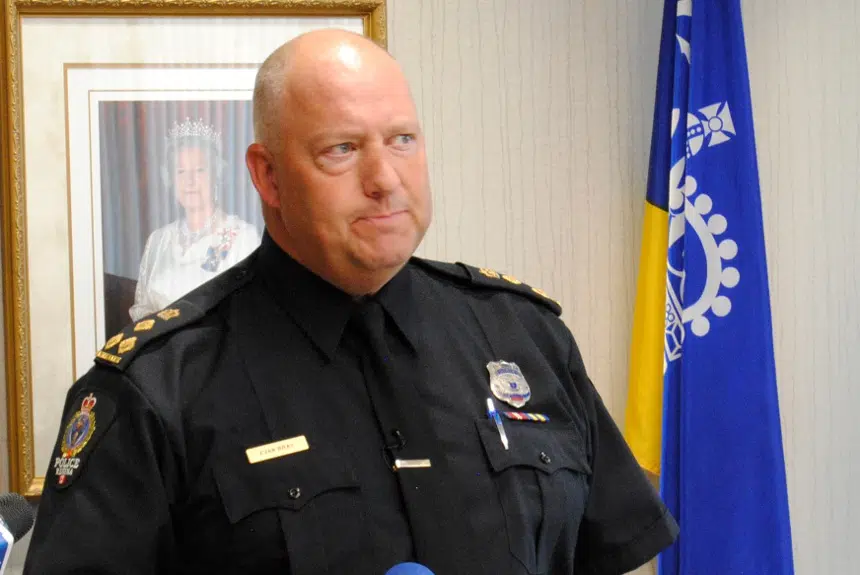Regina Police Service Chief Evan Bray is among his many peers across the country supporting the decriminalization of simple drug possession.
When police in Regina encounter people carrying drugs, the only intervention available to them is to lay a criminal charge, something with which Bray has a problem.
“A person who suffers with an addiction has a health issue and is sick. And handcuffs aren’t always the best solution to try to get that person help,” he said.
Last week, the Canadian Association of Chiefs of Police called for an approach toward addiction that focuses on health, increasing access to treatment and social services.
Personal possession would still be illegal under such an approach but would result in a ticket rather than a criminal charge. It would also allow police to steer the offender away from the criminal justice system.
“There also could be administrative sanctions that allow for a diversion to health-care professionals who might be able to provide service and support that ultimately digs into the root cause … and less focus on the fact that the person was possessing illegal drugs,” Bray said.
The CACP notes those supports would need to exist on local, provincial and national levels.
More serious drug offences like those related to organized crime, the manufacturing or trafficking of illicit substances, or driving while impaired would still be dealt with criminally.
Bray said this would result in better community safety.
“The peripheral crime that is often associated in the drug world drops off. Victimization goes down and ultimately fewer families and businesses are torn apart by the drug problem that is currently wreaking havoc in our city,” he said.
The chief also said police would see a lighter workload.
“Anytime we can dig into root causes of crime or root causes of social challenges and provide meaningful, long-term sustainable change, it ultimately means a reduction in work for police,” Bray said.
“If we think about it, in its purest form, that’s what we all want. We would all like the police not to have work to do.”
— With files from 980 CJME’s Libby Giesbrecht











